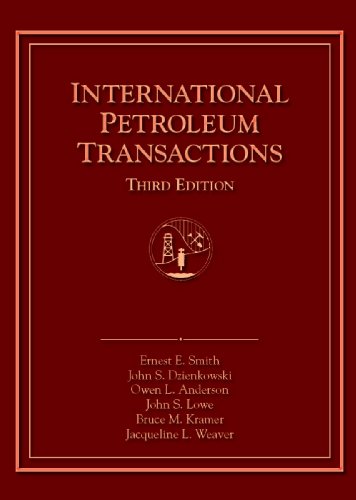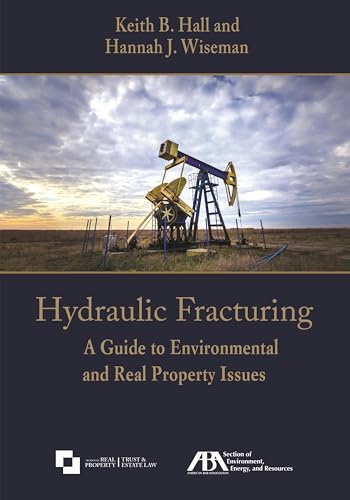Keith B. Hall
LSU Law Nesser Family Chair in Energy Law, Director of the LSU John P. Laborde Energy Center, Director of the LSU Mineral Law Institute, and Professor of Law Louisiana State University
- Baton Rouge LA
Keith B. Hall is a frequent speaker on oil and gas, energy, and environmental law at the national and international levels.
Biography
Professor Hall is Editor-in-Chief of the Institute for Energy Law’s Oil & Gas E-Report, and he serves as a member of the Trustees Council of the Foundation for Natural Resources and Energy Law (formerly known as the Rocky Mountain Mineral Law Foundation), the Board of Trustees of the Energy & Mineral Law Foundation, and the Educational Advisory Board of the Association of International Petroleum Negotiators. He is a former Chair of the Louisiana State Bar Association's Environmental Law Section and former Chair of the Oil & Gas Committee of the ABA Section of Environment, Energy and Resources. He serves on the Louisiana Law Institute’s Water Law Committee and is a registered professional engineer (license status, inactive).
Areas of Expertise
Research Focus
Energy Law & Mineral Rights
Prof. Hall’s research focuses on oil‑and‑gas and broader energy law—mineral rights, pipeline and drilling contracts, and environmental regulation governing hydrocarbon development. He analyzes case law and statutory regimes, leads LSU’s Energy Law Center and Mineral Law Institute, and translates legal scholarship into policy guidance for regulators, attorneys, and industry.
Education
Loyola University School of Law
J.D.
1996
Louisiana State University
B.S.
Chemical Engineering
1985
Media Appearances
Gov. Jeff Landry and Louisiana's oil industry are at odds over bill heading for key vote
The Advocate online
2025-06-07
Keith Hall, an LSU professor who specializes in energy law, said the office was put inside the department when state government was reorganized in the mid-1970s. But Hall said he suspected that even with the consolidation, day-to-day operations wouldn't change much because so much is handled by staff.
Louisiana waters to remain open for business under Biden's ban on new offshore drilling
NOLA online
2025-01-07
Keith Hall, the director of the Energy Law Center at Louisiana State University, said that it was “probably the intent of the Biden administration” to make this ban difficult for the Trump administration to overturn.
“The opponents of leasing say that it’s a one-way operation,” Hall said.
“Clearly Congress could put an area back into leasing, but does it take that?” he added. “Neither the Supreme Court nor an appellate court has ruled on whether a president can revoke a prior withdrawal.”
Energy Transfer pipeline fight could hurt Haynesville
KTBS tv
2024-01-04
Louisiana State University energy law professor Keith Hall predicted a court would consider LOGA's interpretation as "baloney," as it effectively erases the presence of the word "exclusive."
Hall was also skeptical of the parties' claims that the ruling would prevent future gas line crossings, since few pipeline servitude contracts contain the word "exclusive." Even in this case, the ruling would not ultimately block competing lines since companies could obtain the right to do so by eminent domain, just as they would with a holdout landowner, Hall said.
Public outcry against carbon capture in Louisiana growing
WWNO 88.9 radio
2024-01-02
Task force chairman Keith Hall said the group has been operating under the assumption that meetings were to take place at the state Capitol during business hours like all other legislative committees.
“None of us asked that question if we could meet later in the evening or in other places,” said Hall, director of Louisiana State University’s Energy Law Center. “It would be great if we had more comments from other areas.”
Articles
Carbon Capture and Storage: Models for Compensating Non-consenting Landowners
San Diego Journal of Climate and Energy Law2023
As one of several tools to address climate change, the Intergovernmental Panel on Climate Change, the U.S. government, and several state governments are supporting carbon capture and storage (CCS), which involves the capture of CO2 from the atmosphere or industrial emissions, then injecting it deep underground for permanent storage.
Reconciling Property Rights with Carbon Capture and Storage
Belmont Law Review2023
The UN’s Intergovernmental Panel on Climate Change states that the world should combat climate change with a multipronged approach that includes capturing CO2 from the atmosphere or industrial emissions, and then injecting the CO2 deep underground for permanent storage. Likewise, each of the last four U.S. Presidential administrations (Biden, Trump, Obama, and Bush) have supported such carbon capture and storage (CCS) projects. However, to perform CCS on the scale contemplated by the IPCC and the U.S. government, huge investments in numerous CCS projects will be needed. Moreover, investors dislike uncertainty, including legal uncertainty, and the injection of CO2 raises property law questions that are not well-resolved.
Decommissioning of Offshore Oil and Gas Facilities in the United States
Charleston Law Review2023
U.S. offshore oil and gas decommissioning regulations are well-developed and the U.S. has significant experience in such decommissioning. One of the main regulatory challenges relates to financial assurance--in particular, how to strike the right balance between requiring sufficient financial assurance to minimize the likelihood that taxpayers will have to foot the bill for decommissioning, while attempting to avoid requiring such a high level of financial assurance that the requirement deters drilling. This challenge arises in part from uncertainty regarding the ultimate cost of decommissioning.
An International Comparison of the Operatorship Provisions Contained in Model Form Oil & Gas Joint Operating Agreements
LSU Journal of Energy Law and Resources2023
Often, multiple companies co-own the oil and gas exploration and production rights in a particular area. In these circumstances, the companies sometimes enter joint operating agreements to govern the exploration and development process and to define their respective rights and duties with respect to one another. Such agreements are common throughout the world, and they constitute one of the most important types of contracts that relate to oil and gas exploration and production.
Ruminations on the Continuing Evolution of Trespass Law in the Context of Mineral Development
LSU Journal of Energy Law and Resources2023
The law of trespass continues to evolve in the context of mineral exploration and production, including both oil and gas activity and mining. These activities raise unique trespass issues given such factors as the great depths at which operations take place, the fact that surface estate and mineral estate owners have different rights in the same land, and that the public policy of avoiding waste sometimes conflicts with a plaintiff's desire to assert trespass claims to vindicate their alleged possessory rights.
Affiliations
- New Orleans Bar Association's Oil & Gas Section : Co-Chair
- Louisiana Mineral Law Institute : Director
- Louisiana State Bar Association's Environmental Law Section : Vice Chair
- Rocky Mountain Mineral Law Foundation : Member, Board of Trustees
- Oil & Gas Committee of the ABA's Section of Environment, Energy and Resources : Program Chair
Event Appearances
Gathering Agreements 101
2023 | Dallas Bar Association’s 38th Annual Review of Energy Law Conference Dallas, TX
Drafting and Negotiating Instruments to Acquire Pore Space Rights for CCS,
2023 | 69th Annual Natural Resources and Energy Law Institute Salt Lake City, UT
Recent Developments in Louisiana Oil & Gas Law,
2023 | 69th Annual Natural Resources and Energy Law Institute Salt Lake City, UT







